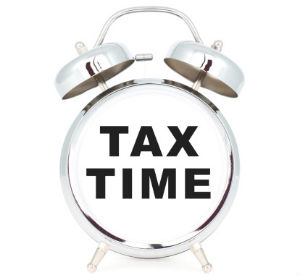Tax planning: Here is a complete guide for salaried employees

Are you worried that you have not utilized all the tax saving provisions? Are you staring at a huge tax deduction from March salary?
If you have already made the provisions and investments, then it's no big deal for you. But in case you are one of the late movers, time has come to make fast moves.
Broadly, there are three ways to ensure that you pay optimal tax; Claiming tax free income, incidental actions that bring tax benefits and finally Investing/saving for tax benefits.
Let us explore them in detail;
Claiming tax free income:
- All you need to do here is submit documents to the HR and relax. Your tax outflow will automatically get managed. These are applicable for salary components that are tax free in nature. Here is the list of items:
- In case you live in a rented apartment and want to make your HRA tax free: Submit 12 month's rental receipt from owner
- For making medical allowance tax free you need to submit medical bills for the year
- To make leave travel allowance (LTA) tax free you need to submit travel proofs
- For conveyance allowance to be made tax free you need to do nothing to prove. Attending work is good enough we guess!
Incidental actions that bring tax benefits
Here you get benefits for certain positive actions you take in your financial life. Here again all you need to do is submit proofs to claim tax benefits for those actions.
- Interest payment on your home loan- this qualifies under section 24
- Principal re-payment on your home loan- this qualifies under section 80C tax rebate
- Insurance premium receipts paid for the year- this qualifies for section 80C tax rebate
- Tuition fee receipt paid for your children if any- this qualifies for section 80C tax rebate
- Your side contribution to employee provident fund (no proof to be submitted as the HR already has the records) - this qualifies for section 80C tax rebate
- Mediclaim premium receipt- this qualifies for section 80D tax rebate
- Parents' mediclaim premium receipt- this qualifies for section 80D tax rebate
- Education loan statement (mentioning the interest component)- this qualifies for section 80E tax rebate
- You must be wondering why Insurance is figuring in this incidental category? Primarily, insurance is supposed to be seen in that manner. We discourage buying insurance policies as a tax saving tool. Same with mediclaim.
Investing/saving for tax benefits
Here is where you need to plan and act for managing your tax outgo. Broadly here you deal with the provisions of Sec 80C/Sec 80 CCC, 80G and 80 CCG. You are primarily expected to invest in any of the products listed in these sections and in return you get the benefit of paying lesser tax. But there is an upper limit to this. For both section 80C and section 80CCC the upper limit collectively is Rs 1,00,000.
Section 80C/ 80CCC:
In case the total amount claimed under 80C from the items that are listed in the above incidental category is totaling to Rs 1,00,000 then just chill. You have nothing much to do under these sections. But if total is less than Rs 1,00,000 then you can make some investments to claim tax benefits.
The products that qualify for the same are as follows:
- Public provident fund
- Bank fixed deposits (the 5 yr thing)
- Mutual fund-ELSS
- ULIPs
- National Savings Certificate (NSC)
- Pension Plan
Naturally your next question will be which product to choose. Here is our recommendation:
On closely looking at the products you will notice that all of them are long-term in nature. As it is a long-term investment, we need to take into consideration the negative impact of inflation while deciding on the product. Inflation robs the value of money as time passes. What a Rs 500 note can buy today cannot buy after say 5 years. Probably you need to have a Rs 1000 note! Hence whenever you make investments that are long-term in nature, the returns you earn necessarily should beat inflation.
Only growth assets have the power to beat inflation in the long run. Equities, equity mutual funds, gold and real estate have the power to beat inflation in the long run. Though they are riskier by nature, in the long run it delivers the best value. Income assets like fixed deposits, bonds, traditional investment-cum insurance policies, etc gives returns less than inflation.
Source: Fintotal
































